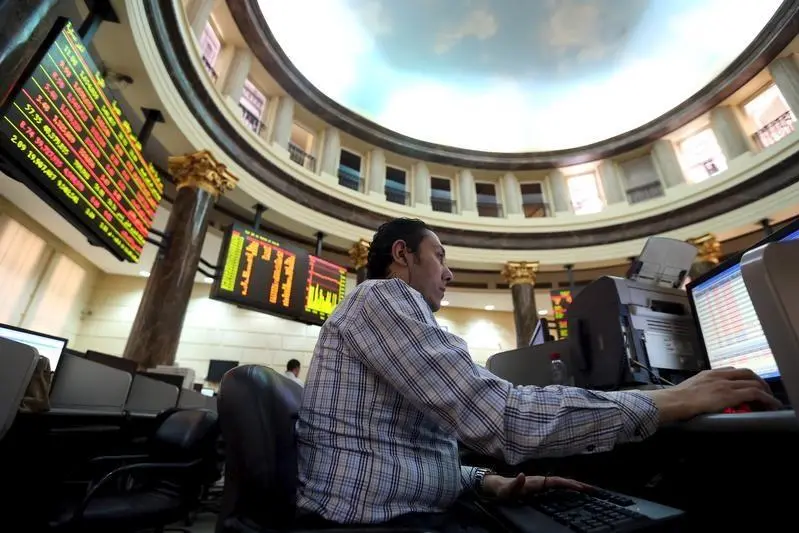PHOTO
DUBAI: Egypt's stock market plunged to its lowest close this year on Wednesday as liquidity tightened, while most Gulf markets were little changed and Saudi Arabia continued to rebound from six-month lows.
The Egyptian stock index .EGX30 tumbled 3.8 percent, its biggest drop since mid-2016. On Sunday it had plunged 3.6 percent after an Egyptian criminal court ordered the arrest of ousted president Hosni Mubarak’s two sons on charges of stock market manipulation.
Fund managers said Egypt's slide was at least partly due to jitters in emerging markets globally, although MSCI's emerging market equity index .MSCIEF rose on Wednesday, and credit default swaps and currency forwards do not so far show heavy pressure on the Eguptian pound. "Our channel checks suggest the sell-off in the Egyptian market is local retail and institutions driven, on currency fears and speculation over a further round of devaluation," said Vrajesh Bhandari, portfolio manager at Al Mal in Dubai.
"Selling is further intensified as margin calls are triggered and technical support levels break down. The country cancelled three consecutive Treasury auctions, citing investors' unrealistic yield demands."
Rania Yacoub at 3Way Finance in Cairo cited a “severe lack of liquidity in the market and investor worries about the emerging markets crisis”.
“Eyes are on the next central bank meeting on interest rates to see how the bank will behave in light of the limited options before it,” Yacoub said.
Allen Sandeep, head of research at Naeem Brokerage, said nobody completely understood the reasons for the market's losses but they probably included fallout from the arrests of the Mubarak sons, liquidity being drained by two initial public offers now under way, and margin calls.
Qalaa Holdings, which has said its investor relations head Amr El-Kadi was detained in connection with the manipulation case, plummetted 8.9 percent on Wednesday.
But investment bank EFG-Hermes, which has said its non-executive vice chairman Yasser El Mallawany was also detained in connection with the case, closed up 0.3 percent.
In Saudi Arabia, the index climbed 1.1 percent. High oil prices and the Gulf's currency pegs to the dollar have protected the region from some though not all of the emerging market turmoil.
Riyadh exchange data released early this week showed foreign money continuing to enter the market, although in much-reduced volumes.
Telecommunications firm Mobily climbed 2.2 percent while petrochemical producer Saudi Kayan added 2.0 percent. United Electronics 4003.SE was up 1.7 percent after shareholders approved a capital boost via a bonus share issue.
Rights to a share issue by insurer MedGulf, were heavily traded, rebounding 2.7 percent after falling in their first two days of trade. The underlying stock climbed 3.1 percent.
Dubai's index shed 0.1 percent in narrow trade, with decliners outnumbering gainers by 20 to 11. Qatar's index edged down 0.2 percent but Qatar Insurance jumped 5.9 percent in its heaviest trade for three months.
SAUDI ARABIA
* The index gained 1.1 percent to 7,730 points.
DUBAI
* The index shed 0.1 percent to 2,741 points.
ABU DHABI
* The index gained 0.2 percent to 4,884 points.
QATAR
* The index lost 0.2 percent to 9,805 points.
KUWAIT
* The index lost 0.3 percent to 5,322 points.
OMAN
* The index lost 0.2 percent to 4,485 points.
EGYPT
* The index lost 3.8 percent to 14,099 points.
(Additional reporting by Ehab Farouk and Eric Knecht in Cairo; Writing by Andrew Torchia; Editing by Robin Pomeroy)





















